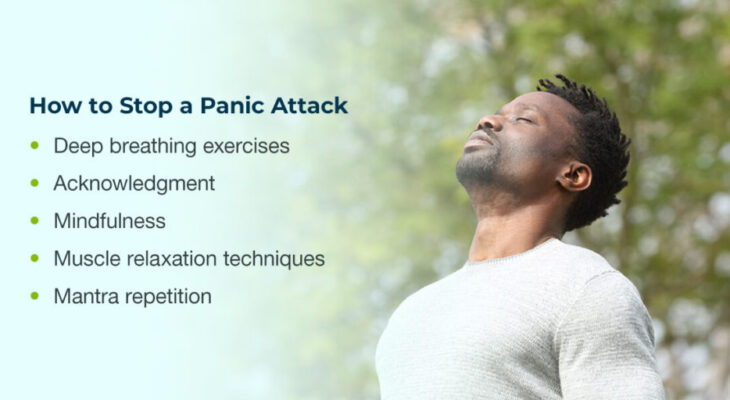Many people will experience panic attacks or anxiety at some point in their lives. Panic attacks and anxiety have similar symptoms but still are different. Symptoms of both anxiety and panic attacks are a pounding heartbeat, nausea, chest pains, sweating, trembling, feeling unable to breathe, numb or tingly hands, lightheadedness, and dizziness. All these symptoms may seem very dangerous, but all the panic attacks pass. They usually last between 5 and 20 minutes but can last for longer. And since all people react to different situations on their own, the symptoms of anxiety and panic can vary from person to person.
The feeling of anxiety and panic attacks have no apparent causes. You can be anxious when you expect something, but, quite possibly, it will never happen. Real worries are reactions to a specific situation. It is easier to fight with real worries than with panic attacks and anxiety. If you react to a specific situation, you can always find a way to fight it. But when there is nothing to fight with, and the feeling of anxiety is there, it is harder to overcome it.
Tips On How To Manage Panic Attacks And Anxiety
If you are experiencing a panic attack, there are some proven self-help strategies to cope with it. Relax your body, count slowly to 10, or take a few slow deep breaths. Slow counting backward from 100 is another distraction technique to overcome anxious thoughts. A grounding 4-3-2-1 technique helps you ground up. To do it, focus on the things outside yourself. Find 4 things you can see, 3 things you can touch, 2 you can smell, and 1 you can taste.
Focus all your attention on these objects. And if possible, stay where you are. Don’t try to fight a panic attack, but go through it. If a panic attack lasts longer than 15-30 minutes, seek emergency medical help. If you are experiencing panic attacks often, it is also important to seek help and treat panic attacks and anxiety regularly. Regular panic attacks can cause serious problems in everyday life. If they impede the ability to enjoy a productive life, it is time to seek support.
Find A Therapist
Seek counseling to treat panic attacks. A healthcare provider and a psychotherapist will help you deal with panic and approach stressful situations differently. First, go to the mental care provider. And then the psychotherapist also finds out the roots of the problem. The proven types of mental health therapy are Cognitive Behavioral Therapy (CBT), Dialectical Behavior Therapy (DBT), exposure therapy, and humanistic therapy. CBT is by far one of the most successful mental health therapies for treating panic attacks and anxiety. Sometimes patients who suffer from panic disorder also get prescribed antidepressants, anti-anxiety medications, and beta-blockers.
Practice The Mindfulness And Relaxation Techniques Before A Panic Attack
It can be very difficult to apply the 4-3-2-1 rule or another relaxation technique in the midst of a panic attack. Therefore, it is important to be prepared for the next panic attack and have techniques ready to use. Practice calm breathing throughout the day and be prepared for the next panic attack.
Engage In Light Exercises Regularly
Regular exercise can significantly reduce the chances of developing panic disorder and anxiety. And you don’t need to do hard-core workouts. Choose simple everyday activities like yoga, slow jogging, and walking. Only a quick walk can release endorphins, change your heart rate, and help you overcome negative thoughts. There are also other ways to release endorphins (for example, playing games in the National Casino!), but walking belongs to the healthiest ones. Incorporate moderate exercises into your daily routine to help you rest and keep the mind in the present moment.
Use Self-Help Resources
The use of self-help resources isn’t a replacement for mental therapy or other treatment. However, it can help you combat panic attacks. Seek information about panic attacks, read workbooks on panic attacks, and personal stories of it, and keep up to date with current research. Share your knowledge with other people who suffer from panic attacks and anxiety.
Get Enough Sleep
Lack of proper sleep fuels irritability, stress, and anxiety. To curb panic attacks effectively, avoid this negative factor. To do that, make sure you have a good night’s sleep.
Final Words
Though panic attacks are treatable, managing them in day-to-day life takes time. Don’t try all the coping strategies at once, but start with seeking medical help or psychotherapy.





